The Independent's journalism is supported by our readers. When you purchase through links on our site, we may earn commission.
40 best books to read before you die, from Great Expectations to Wolf Hall
Losing yourself in a great novel is one of life’s joys. Here our critics Ceri Radford and Chris Harvey pick the books you need to read

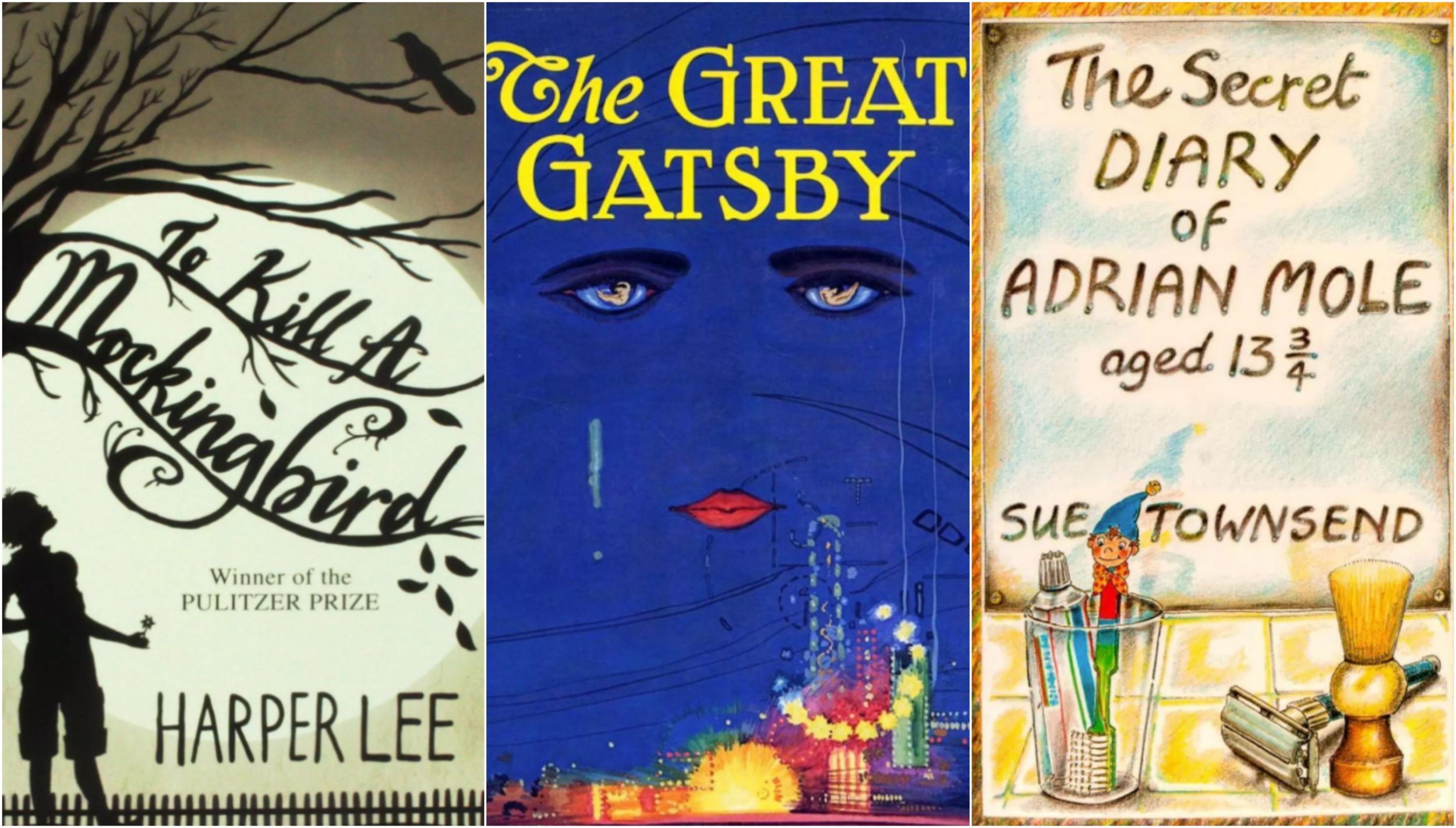
Your support helps us to tell the story
From reproductive rights to climate change to Big Tech, The Independent is on the ground when the story is developing. Whether it's investigating the financials of Elon Musk's pro-Trump PAC or producing our latest documentary, 'The A Word', which shines a light on the American women fighting for reproductive rights, we know how important it is to parse out the facts from the messaging.
At such a critical moment in US history, we need reporters on the ground. Your donation allows us to keep sending journalists to speak to both sides of the story.
The Independent is trusted by Americans across the entire political spectrum. And unlike many other quality news outlets, we choose not to lock Americans out of our reporting and analysis with paywalls. We believe quality journalism should be available to everyone, paid for by those who can afford it.
Your support makes all the difference.Books, books, books. They will increase your lifespan, lower your stress and boost your intelligence. They will give you fuller, thicker hair.
Whatever the breathless claims about reading, one thing is certain: losing yourself in a great novel is one of life’s most enduring and dependable joys. Job satisfaction comes and goes, partners enrapture and abscond, but you can always fall back on the timeless ability of literature to transport you to a different world. From Jane Austen’s mannered drawing rooms to the airless tower blocks of 1984, novels do something unique. They simultaneously speak to the heart and mind. They teach you about the history of our world, the possibilities of our future and the fabric of our souls.
So where do you start? It’s a fraught question, because the obvious answer – “the literary canon” – means a pantheon of predominantly dead, white dudes. The power structures at play for centuries have meant that a very narrow band of people have been given the opportunity to say something universal about the human condition. It’s impossible to ignore these biases: the least we can do is acknowledge them, include different perspectives, and point to some excellent resources here, here and here to discover more writers we should be reading.
As it stands, whittling this list down to 40 novels has been a process that makes Brexit negotiations look simple and amicable. We hope you enjoy the selection – or at least enjoy arguing about who should or should not have made the cut.
We may earn commission from some of the links in this article, but we never allow this to influence our content.
Pride and Prejudice, Jane Austen
It is a fact universally acknowledged that every list of great books must include Pride and Prejudice. Don’t be fooled by the bonnets and balls: beneath the sugary surface is a tart exposé of the marriage market in Georgian England. For every lucky Elizabeth, who tames the haughty, handsome Mr Darcy and learns to know herself in the process, there’s a Charlotte, resigned to life with a drivelling buffoon for want of a pretty face. CR
The Secret Diary of Adrian Mole, Aged 13 ¾, Sue Townsend
Read this one when you’re decrepit enough, and chances are you’ll die laughing. No one has lampooned the self-absorption, delusions of grandeur and sexual frustration of adolescence as brilliantly as Sue Townsend, and no one ever will. Beyond the majestic poetry and the pimples, there’s also a sharp satire of Thatcherist Britain. CR
Start your 30-day Audible trial and get this audiobook for free here.
Charlie and the Chocolate Factory, Roald Dahl
Harry Potter may be more popular, but Willy Wonka is altogether weirder. From the overwhelming poverty experienced by Charlie Bucket and his family, to the spoilt, greedy, brattish children who join Charlie on his trip to Willy Wonka’s phantasmagorical sweet factory there is nothing artificially sweetened in Roald Dahl’s startling work of fantasy. CH
Start your 30-day Audible trial and get this audiobook for free here.
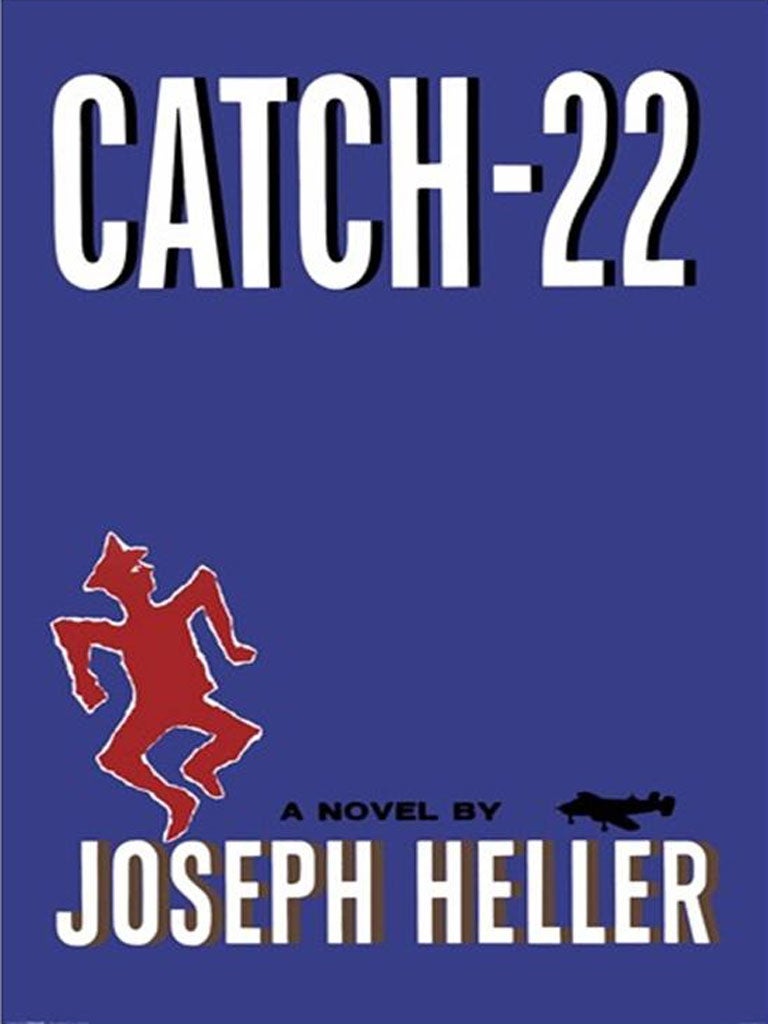
Things Fall Apart, Chinua Achebe
A classic exposé of colonialism, Achebe’s novel explores what happens to a Nigerian village when European missionaries arrive. The main character, warrior-like Okonkwo, embodies the traditional values that are ultimately doomed. By the time Achebe was born in 1930, missionaries had been settled in his village for decades. He wrote in English and took the title of his novel from a Yeats poem, but wove Igbo proverbs throughout this lyrical work. CR
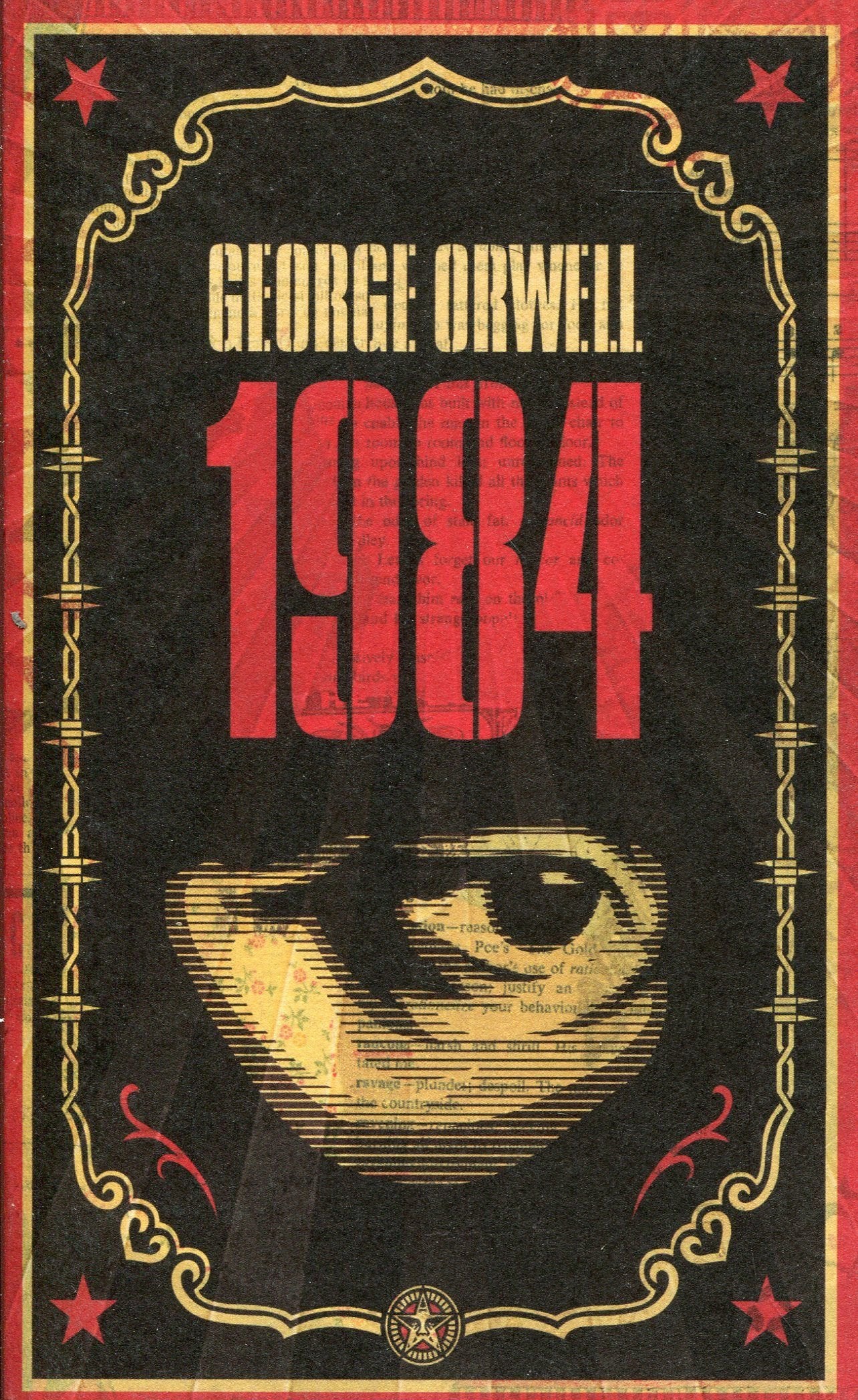
1984, George Orwell
The ultimate piece of dystopian fiction, 1984 was so prescient that it’s become a cliché. But forget TV’s Big Brother or the trite travesty of Room 101: the original has lost none of its furious force. Orwell was interested in the mechanics of totalitarianism, imagining a society that took the paranoid surveillance of the Soviets to chilling conclusions. Our hero, Winston, tries to resist a grey world where a screen watches your every move, but bravery is ultimately futile when the state worms its way inside your mind. CR
Start your 30-day Audible trial and get this audiobook for free here.
Rebecca, Daphne du Maurier
The second Mrs de Winter is the narrator of Du Maurier’s marvellously gothic tale about a young woman who replaces the deceased Rebecca as wife to the wealthy Maxim de Winter and mistress of the Manderley estate. There she meets the housekeeper Mrs Danvers, formerly devoted to Rebecca, who proceeds to torment her. As atmospheric, psychological horror it just gets darker and darker. CH
Start your 30-day Audible trial and get this audiobook for free here.
Great Expectations, Charles Dickens
Dickens was the social conscience of the Victorian age, but don’t let that put you off. Great Expectations is the roiling tale of the orphaned Pip, the lovely Estella, and the thwarted Miss Havisham. First written in serial form, you barely have time to recover from one cliffhanger before the next one beckons, all told in Dickens’ luxuriant, humorous, heartfelt prose. CR
Start your 30-day Audible trial and get this audiobook for free here.
To Kill a Mockingbird, Harper Lee
A timeless plea for justice in the setting of America’s racist South during the depression years, Lee’s novel caused a sensation. Her device was simple but incendiary: look at the world through the eyes of a six-year-old, in this case, Jean Louise Finch, whose father is a lawyer defending a black man falsely accused of raping a white woman. Lee hoped for nothing but “a quick and merciful death at the hands of the reviewers”: she won the Pulitzer and a place on the curriculum. CR
Start your 30-day Audible trial and get this audiobook for free here.
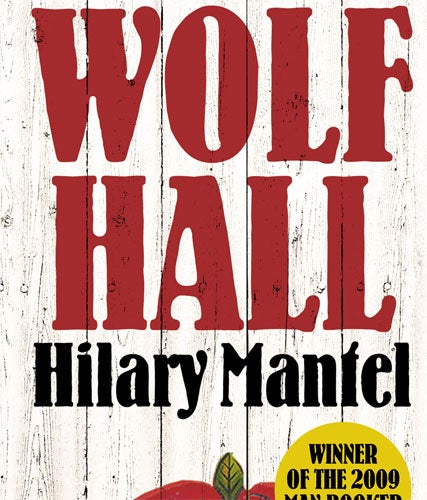
Wolf Hall, Hilary Mantel
In an astonishing act of literary ventriloquism, Mantel inhabits a fictionalised version of Thomas Cromwell, a working-class boy who rose through his own fierce intelligence to be a key player in the treacherous world of Tudor politics. Historical fiction so immersive you can smell the fear and ambition. CR
Start your 30-day Audible trial and get this audiobook for free here.
The Big Sleep, Raymond Chandler
Dashiell Hammett may have been harder boiled, his plots more intricate but, wow, does Raymond Chandler have style. The push and pull at the start of The Big Sleep between private detective Philip Marlowe, in his powder-blue suit and dark blue shirt, and Miss Carmen Sternwood, with her “little sharp predatory teeth” and lashes that she lowers and raises like a theatre curtain, sets the tone for a story of bad girls and bad men. CH
Start your 30-day Audible trial and get this audiobook for free here.
Frankenstein, Mary Shelley
Shelley was just 18 when she wrote Frankenstein as part of a challenge with her future husband, Percy Shelley, and Lord Byron, to concoct the best horror story. Put down the green face paint: Frankenstein’s monster is a complex creation who yearns for sympathy and companionship. Some 200 years after it was first published, the gothic tale feels more relevant than ever as genetic science pushes the boundaries of what it means to create life. CR
Start your 30-day Audible trial and get this audiobook for free here.
Wuthering Heights, Emily Brontë
Will there ever be a novel that burns with more passionate intensity than Wuthering Heights? The forces that bring together its fierce heroine Catherine Earnshaw and cruel hero Heathcliff are violent and untameable, yet rooted in a childhood devotion to one another, when Heathcliff obeyed Cathy’s every command. It’s impossible to imagine this novel ever provoking quiet slumbers; Emily Brontë’s vision of nature blazes with poetry. CH
Start your 30-day Audible trial and get this audiobook for free here.
Lord of the Flies, William Golding
Anyone who has ever suspected that children are primitive little beasties will nod sagely as they read Golding’s classic. His theory is this: maroon a bunch of schoolboys on an island, and watch how quickly the trappings of decent behaviour fall away. Never has a broken pair of spectacles seemed so sinister, or civilisation so fragile. CR
Start your 30-day Audible trial and get this audiobook for free here.
Vanity Fair, William Makepeace Thackeray
All the teeming life of 19th century London is here in Thackeray’s masterpiece, right down to the curry houses frequented by Jos Sedley, who has gained a taste for the hot stuff as an officer in the East India Trading Company. But it is Becky Sharp, one of literature’s great characters, who gives this novel its enduring fascination. As a woman on the make, Becky is the perfect blend of wit, cunning and cold-hearted ruthlessness. Try as film and TV might to humanise and make excuses for her, Becky needs victims to thrive! And she’s all the more compelling for that. CH
Start your 30-day Audible trial and get this audiobook for free here.
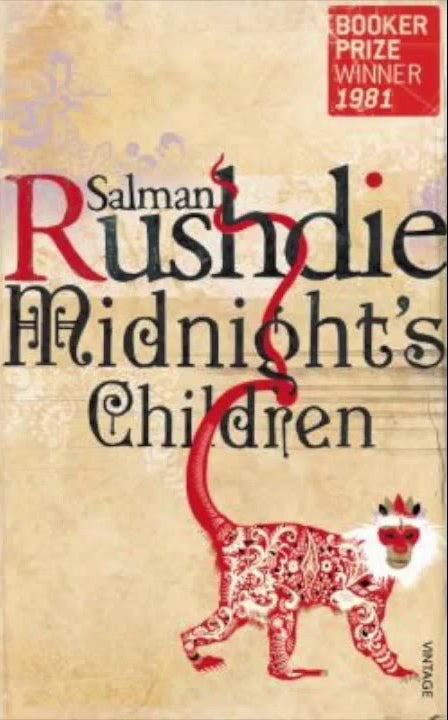
Midnight’s Children, Salman Rushdie
The protagonist of Rushdie’s most celebrated novel is born at the exact moment India gains independence. He’s also born with superpowers, and he’s not the only one. In an audacious and poetic piece of magical realism, Rushdie tells the story of India’s blood-soaked resurgence via a swathe of children born at midnight with uncanny abilities. CR
Start your 30-day Audible trial and get this audiobook for free here.
Lolita, Vladimir Nabokov
Banned from entering the UK in its year of publication, 1955, Vladimir Nabokov’s astonishingly skilful and enduringly controversial work of fiction introduces us to literary professor and self-confessed hebephile Humbert Humbert, the perhaps unreliable narrator of the novel. He marries widow Charlotte Haze only to get access to her daughter, 12-year-old Dolores, nicknamed Lo by her mother, or as Humbert calls her “Lolita, light of my life, fire of my loins. My sin, my soul.” Cloaking his abuse in the allusive language of idealised love does not lessen Humbert’s crimes, but allows Nabokov to skewer him where he hides. CH
Start your 30-day Audible trial and get this audiobook for free here.
Jane Eyre, Charlotte Brontë
You will need a cold, dead heart not to be moved by one of literature’s steeliest heroines. From the institutional cruelty of her boarding school, the “small, plain” Jane Eyre becomes a governess who demands a right to think and feel. Not many love stories take in a mad woman in the attic and a spot of therapeutic disfigurement, but this one somehow carries it off with mythic aplomb. CR
Start your 30-day Audible trial and get this audiobook for free here.
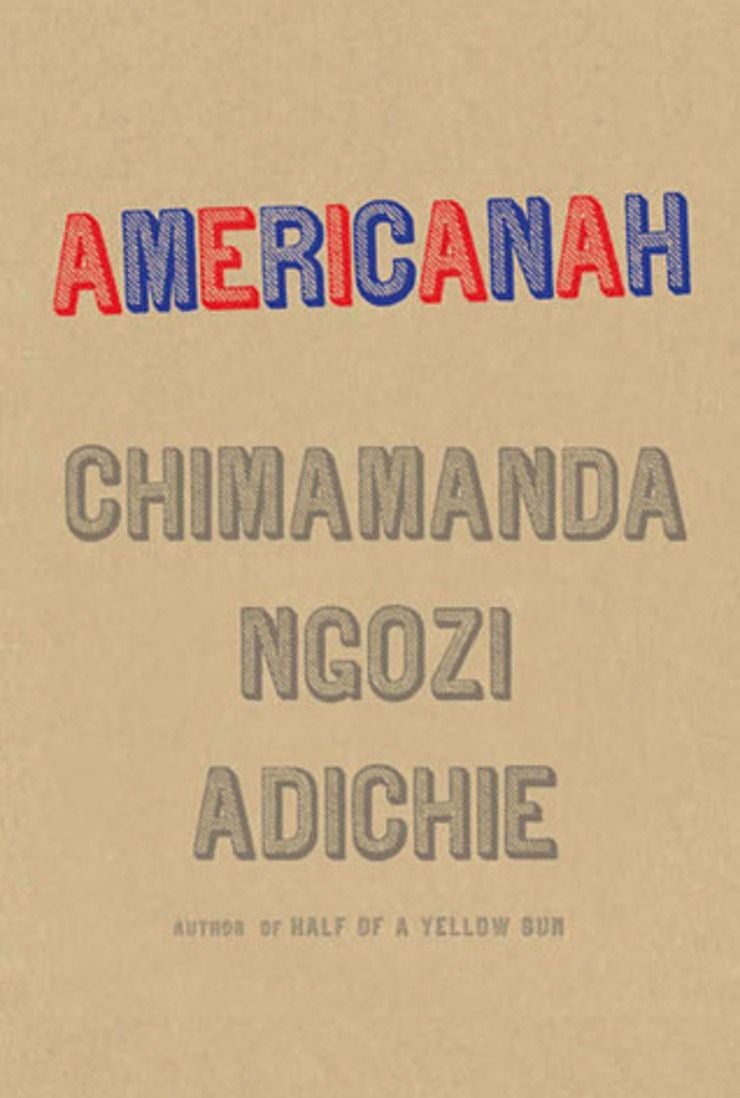
Americanah, Chimamanda Ngozi Adichie
A subtle and engrossing look at racial identity, through the story of a charismatic young Nigerian woman who leaves her comfortable Lagos home for a world of struggles in the United States. Capturing both the hard-scrabble life of US immigrants and the brash divisions of a rising Nigeria, Adichie crosses continents with all her usual depth of feeling and lightness of touch. CR
Start your 30-day Audible trial and get this audiobook for free here.
Cold Comfort Farm, Stella Gibbons
An absolute unadulterated comic joy of a novel. Stella Gibbons neatly pokes fun at sentimental navel-gazing with her zesty heroine Flora, who is more interested in basic hygiene than histrionics. In other words, if you’ve “seen something nasty in the woodshed”, just shut the door. CR
Start your 30-day Audible trial and get this audiobook for free here.
Beloved, Toni Morrison
Dedicated to the “60 million and more” Africans and their descendants who died as a result of the slave trade, this is a cultural milestone and a Pulitzer-winning tour de force. Morrison was inspired by the real-life story of an enslaved woman who killed her own daughter rather than see her return to slavery. In her plot, the murdered child returns to haunt a black community, suggesting the inescapable taint of America’s history. CR
Start your 30-day Audible trial and get this audiobook for free here.
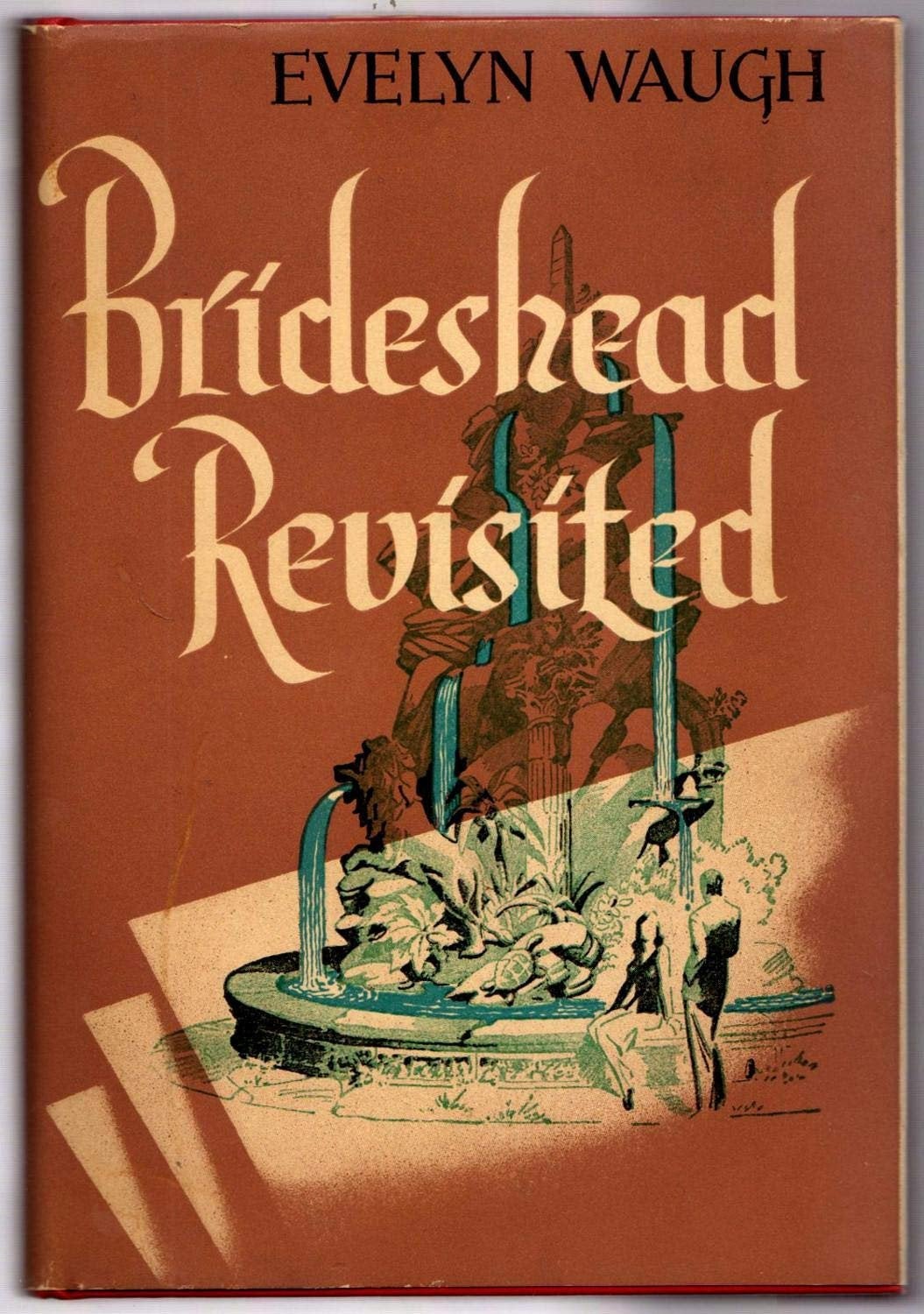
Brideshead Revisited, Evelyn Waugh
Evelyn Waugh bottles the intoxicating vapour of a vanished era in this novel about middle-class Charles Ryder, who meets upper-class Sebastian Flyte at Oxford University in the 1920s. Scrap the wartime prologue, and Charles’s entire relationship with Sebastian’s sister Julia (Dear Evelyn, thank you for your latest manuscript, a few suggested cuts…) and you’re looking at one of the most affecting love affairs in the English language. CH
Start your 30-day Audible trial and get this audiobook for free here.
Dune, Frank Herbert
You can almost feel your mouth dry with thirst as you enter the world of Frank Herbert’s Dune and encounter the desert planet of Arrakis, with its giant sandworms and mind-altering spice. It’s the setting for an epic saga of warring feudal houses, but it’s as much eco-parable as thrilling adventure story. Rarely has a fictional world been so completely realised. CH
Start your 30-day Audible trial and get this audiobook for free here.
The Code of the Woosters,PG Wodehouse
If you haven’t read PG Wodehouse in a hot bath with a snifter of whisky and ideally a rubber duck for company, you haven’t lived. Wallow in this sublimely silly tale of the ultimate comic double act: bumbling aristocrat Bertie Wooster and his omniscient butler, Jeeves. A book that’s a sheer joy to read and also manages to satirise British fascist leader Oswald Mosley as a querulous grump in black shorts. CR
Start your 30-day Audible trial and get this audiobook for free here.
The Great Gatsby, F Scott Fitzgerald
The savage reviews that greeted F Scott Fitzgerald’s third novel – “no more than a glorified anecdote”; “for the season only” – failed to recognise something truly great; a near-perfect distillation of the hope, ambition, cynicism and desire at the heart of the American Dream. Other novels capture the allure of the invented self, from Stendhal’s The Red and the Black to Thomas Mann’s Confessions of Felix Krull, but Fitzgerald’s enigmatic Jay Gatsby casts a shadow that reaches to Mad Men’s Don Draper and beyond. CH
Start your 30-day Audible trial and get this audiobook for free here.
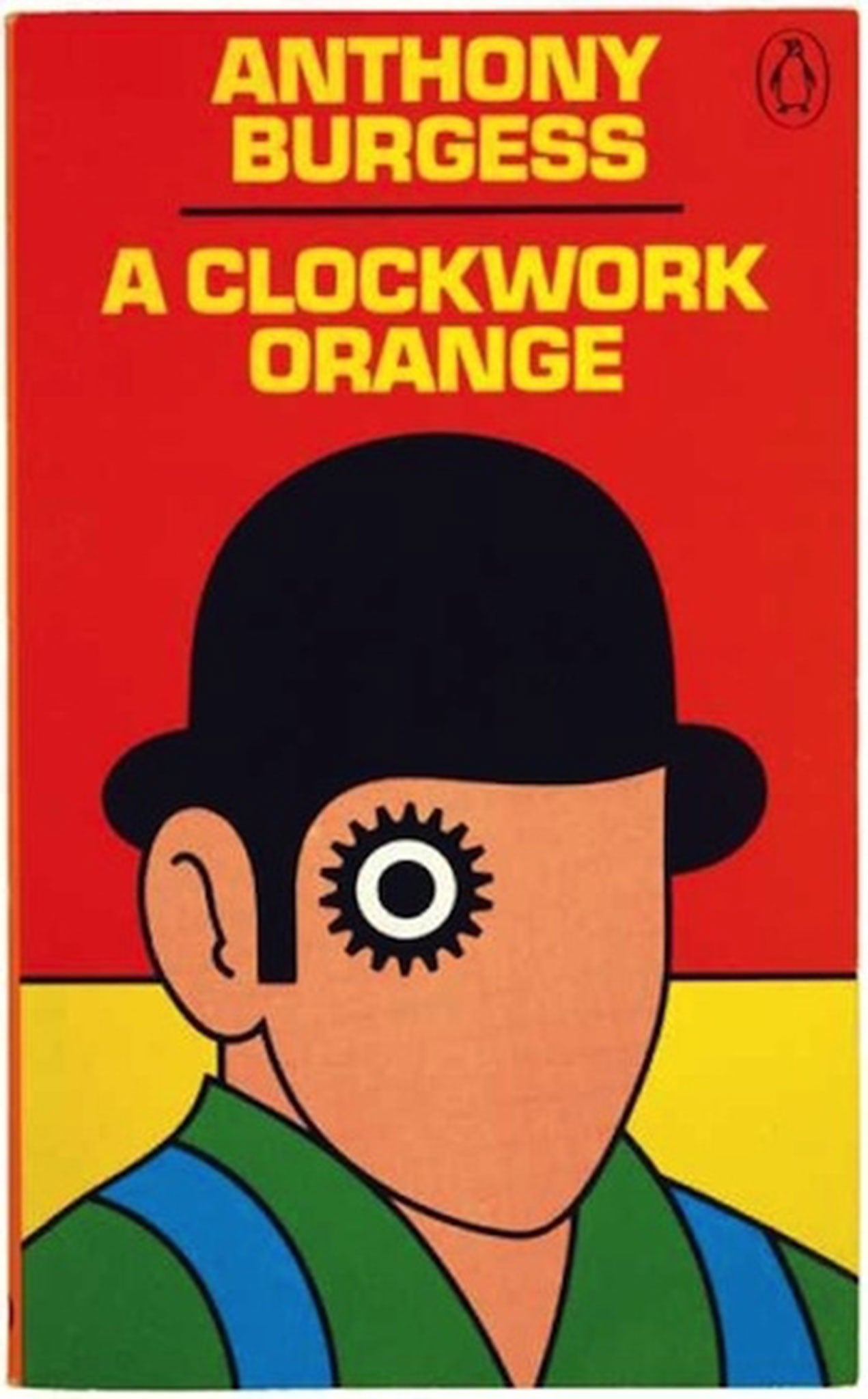
A Clockwork Orange, Anthony Burgess
From the moment we meet Alex and his three droogs in the Korova milk bar, drinking moloko with vellocet or synthemesc and wondering whether to chat up the devotchkas at the counter or tolchock some old veck in an alley, it’s clear that normal novelistic conventions do not apply. Anthony Burgess’s slim volume about a violent near-future where aversion therapy is used on feral youth who speak Nadsat and commit rape and murder, is a dystopian masterpiece. CH
Start your 30-day Audible trial and get this audiobook for free here.
Tess of the d’Urbervilles, Thomas Hardy
A good 125 years before #MeToo, Thomas Hardy skewered the sexual hypocrisy of the Victorian age in this melodramatic but immensely moving novel. Tess is a naïve girl from a poor family who is raped by a wealthy landowner. After the death of her baby, she tries to build a new life, but the “shame” of her past casts a long shadow. Read this if you want to understand the rotten culture at the root of victim blaming. CR
Start your 30-day Audible trial and get this audiobook for free here.
Do Androids Dream of Electric Sheep, Philip K Dick
Here be Roy Baty, Rick Deckard and Rachael Rosen – the novel that inspired Blade Runner is stranger even than the film it became. Back in an age before artificial intelligence could teach itself in a few hours to play chess better than any grandmaster that ever lived, Philip K Dick was using the concept of android life to explore what it meant to be human, and what it is to be left behind on a compromised planet. That he could do it in 250 pages that set the mind spinning and engage the emotions with every page-turn make this a rare science-fiction indeed. CH
Start your 30-day Audible trial and get this audiobook for free here.
The God of Small Things, Arundhati Roy
Roy won the 1997 Booker Prize with her debut novel, a powerful intergenerational tale of love that crosses caste lines in southern India, and the appalling consequences for those who break the taboos dictating “who should be loved, and how. And how much.” Sex, death, religion, the ambivalent pull of motherhood: it’s all there in this beautiful and haunting book. CR
Start your 30-day Audible trial and get this audiobook for free here.
Heart of Darkness, Joseph Conrad
Inspired by Conrad’s own experiences of captaining a trading steamer up the Congo River, Heart of Darkness is part adventure, part psychological voyage into the unknown, as the narrator Marlow relays the story of his journey into the jungle to meet the mysterious ivory trader Mr Kurtz. The novel – although debate continues to rage about whether its attitude to Africa and colonialism is racist – is deeply involving and demands to be read. CH
Start your 30-day Audible trial and get this audiobook for free here.
The Secret History, Donna Tartt
Stick another log on the fire and curl up with this dark, peculiar and quite brilliant literary murder tale. A group of classics students become entranced by Greek mythology – and then take it up a level. Remember, kids: never try your own delirious Dionysian ritual at home. CR
Start your 30-day Audible trial and get this audiobook for free here.
Dracula, Bram Stoker
Whatever passed between Irish theatre manager Bram Stoker and the Hungarian traveller and writer Ármin Vámbéry when they met in London and talked of the Carpathian Mountains, it incubated in the Gothic imagination of Stoker into a work that has had an incalculable influence on Western culture. It’s not hard to read the Count as a shadowy sexual figure surprising straitlaced Victorian England in their beds, but in Stoker’s hands he’s also bloody creepy. CH
Start your 30-day Audible trial and get this audiobook for free here.
Middlemarch, George Eliot
This is a richly satisfying slow burn of a novel that follows the lives and loves of the inhabitants of a small town in England through the years 1829–32. The acerbic wit and timeless truth of its observations mark this out as a work of genius; but at the time the author, Mary Anne Evans, had to turn to a male pen name to be taken seriously. CR
Start your 30-day Audible trial and get this audiobook for free here.
The Catcher in the Rye, JD Salinger
It only takes one sentence, written in the first person, for Salinger’s Holden Caulfield to announce himself in all his teenage nihilism, sneering at you for wanting to know his biographical details “and all that David Copperfield kind of crap”. The Catcher in the Rye is the quintessential novel of the adolescent experience, captured in deathless prose. CH
Start your 30-day Audible trial and get this audiobook for free here.
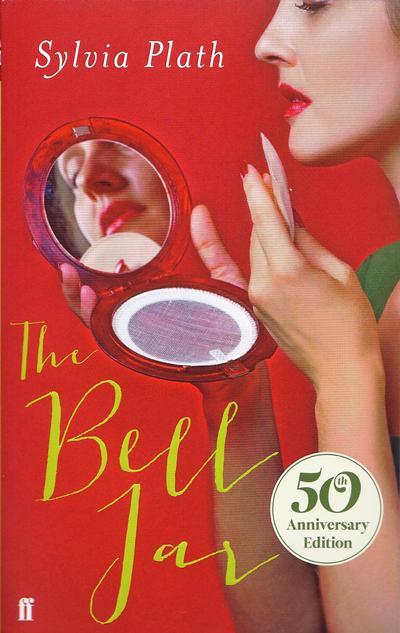
The Bell Jar, Sylvia Plath
The only novel written by the poet Sylvia Plath is a semi-autobiographical account of a descent into depression that the book’s narrator Esther Greenwood describes as like being trapped under a bell jar – used to create a vacuum in scientific experiments – struggling to breathe. Almost every word is arresting, and the way that Plath captures the vivid life happening around Esther – news events and magazine parties – accentuates the deadening illness that drives her towards suicidal feelings. Plath herself would commit suicide one month after the novel’s publication in 1963. CH
Start your 30-day Audible trial and get this audiobook for free here.

Anna Karenina, Leo Tolstoy
Andrew Davies’s recent TV adaptation of War and Peace reminded those of us who can’t quite face returning to the novel’s monstrous demands just how brilliantly Tolstoy delineates affairs of the heart, even if the war passages will always be a struggle. In Anna Karenina – enormous, too! – the great Russian novelist captures the erotic charge between the married Anna and the bachelor Vronsky, then drags his heroine through society’s scorn as their affair takes shape, without ever suggesting we move from her side. CH
Start your 30-day Audible trial and get this audiobook for free here.
Catch-22, Joseph Heller
It’s not often an idiom coined in a novel becomes a catchphrase, but Joseph Heller managed it with his madcap, savage and hilarious tour de force. War is the ultimate dead end for logic, and this novel explores all its absurdities as we follow US bombardier pilot Captain John Yossarian. While Heller drew on his own experience as a WWII pilot, it was the McCarthyism of the Fifties that fuelled the book’s glorious rage. CR
Start your 30-day Audible trial and get this audiobook for free here.
Dangerous Liaisons, Pierre Choderlos de Laclos
The most deliciously wicked experience in literature, this epistolary novel introduces us to the Marquise de Merteuil and Vicomte de Valmont, who play cruel games of sexual conquest on their unwitting victims. The Marquise’s justification for her behaviour – “I, who was born to revenge my sex and master yours” – will strike a chord in the #MeToo era, but emotions, even love, intrude, to the point where Laclos’s amorality becomes untenable. Sexy but very, very bad. CH
Start your 30-day Audible trial and get this audiobook for free here.
100 Years of Solitude, Gabriel Garcia Marquez
The energy and enchantment of Garcia Marquez’s story of seven generations of the Buendia family in a small town in Colombia continue to enthral half a century on. Hauntings and premonitions allied to a journalistic eye for detail and a poetic sensibility make Marquez’s magical realism unique. CH
Start your 30-day Audible trial and get this audiobook for free here.
The Trial, Franz Kafka
“Someone must have been telling lies about Josef K…” So begins Kafka’s nightmarish tale of a man trapped in an unfathomable bureaucratic process after being arrested by two agents from an unidentified office for a crime they’re not allowed to tell him about. Foreshadowing the antisemitism of Nazi-occupied Europe, as well as the methods of the Stasi, KGB, and StB, it’s an unsettling, at times bewildering, tale with chilling resonance. CH
Start your 30-day Audible trial and get this audiobook for free here.
The Leopard, Giuseppe Tomasi di Lampedusa
Published posthumously in 1958, Tomasi di Lampedusa’s novel is set in 19th century Sicily, where revolution is in the air. The imposing Prince Don Fabrizio presides over a town close to Palermo during the last days of an old world in which class stratifications are stable and understood. Garibaldi’s forces have taken the island and a new world will follow. It’s a deep and poetic meditation on political change and the characters that it produces. CH
Start your 30-day Audible trial and get this audiobook for free here.
This article was originally published on 13 October 2019



Join our commenting forum
Join thought-provoking conversations, follow other Independent readers and see their replies
Comments